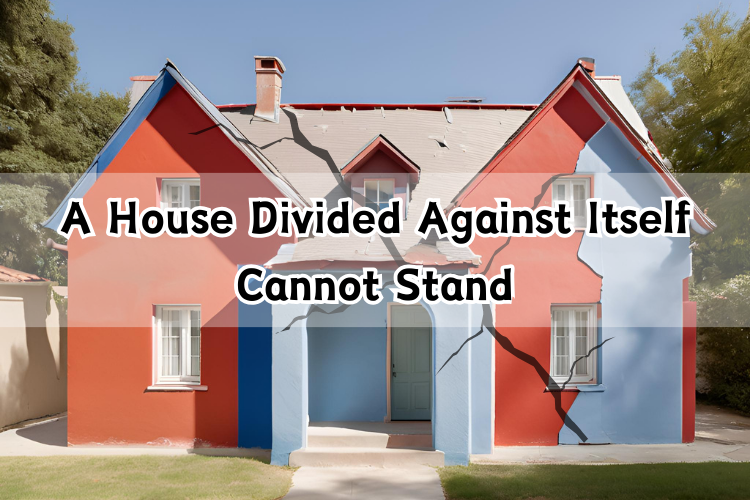This powerful idiom echoes the profound truth that unity is paramount for strength. Let’s unravel its significance and explore its modern and biblical roots.
Modern Meaning: Strength in Unity
“A house divided against itself cannot stand” emphasizes the importance of unity and cohesion. It conveys that when people or groups within an organization or society are in conflict or disunited, they weaken themselves and risk collapse. In modern usage, it serves as a warning against internal strife and division.
Usage Example: Discord Breeds Weakness
Imagine a group project where team members constantly argue and work against each other’s interests. Despite their individual talents, their lack of unity prevents them from achieving success. In this scenario, someone might remark, “Our project is doomed if we can’t work together. A house divided against itself cannot stand.”
Biblical Origin: Divine Wisdom
“And if a house be divided against itself, that house cannot stand.”
– Mark 3:25
This profound statement originates from the teachings of Jesus Christ in the New Testament, emphasizing the importance of unity and cooperation among believers. It highlights the divine wisdom that disunity leads to weakness and eventual downfall.
Variations and Similar Idioms: Shared Sentiments
While “A house divided against itself cannot stand” is the most well-known form, variations like “United we stand, divided we fall” convey similar sentiments. Other idioms such as “A chain is only as strong as its weakest link” and “United we stand, divided we fall” also underscore the importance of unity for strength and success.
In essence, “A house divided against itself cannot stand” serves as a timeless reminder of the fundamental truth that unity is the cornerstone of strength and resilience. It underscores the significance of harmony and cooperation in achieving collective goals and overcoming challenges.
Source: https://www.biblestudytools.com/mark/3-25.html
